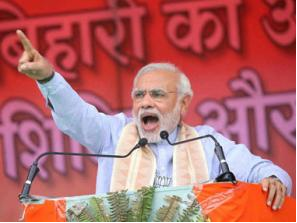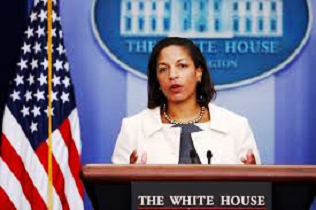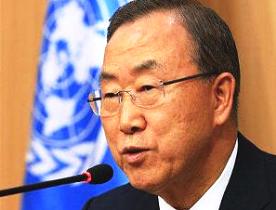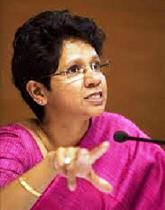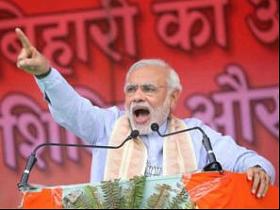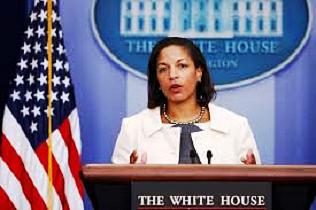Kashmir: Belligerence could lead to World War III
Political language... is designed to make lies sound truthful and murder respectable, and to give an appearance of solidity to pure wind. (George Orwell)
While New York Times in its editorial (August 19, 2015) raised fears that cross border killings in disputed Kashmir could spiral out of control to set off another war between nuclear armed adversaries; India which is considerably stronger and more successful than Pakistan has the most to lose if another war erupts. Indrani Bagchi of The Times of India reports that United Nations Secretary General Ban Ki-Moon showing concern for escalated tensions on ceasefire line across divided Kashmir impresses upon warring countries to show restraint and find a long standing solution to core issue Kashmir to avoid a catastrophe that could perhaps trigger World War III.
Pakistan called off 61st Commonwealth Parliamentary Conference scheduled to be held at Pakistani capital Islamabad September-October this year. This came soon after Indian threat not to attend the conference on the pretext that Pakistan refused to invite "Assembly Speaker" of Kashmir held by India. Pakistan and the people of Kashmir do not recognize the puppet government installed by India. It is argued that inviting Kashmir speaker would give legitimacy and acceptance to Indian occupation. A political master stroke by India was responded with an equal and opposite reaction by Pakistan but India did score another point by scuttling Pakistan’s chance to hold an important international Conference on its soil after a long time. The terrorism bull held by horns by Pakistan security forces making considerable gains; people across the country keep fingers crossed to heave a sigh of relief.
Sushma Swaraj, Indian External Affairs Minister, expending all her Hindi vocabulary wrapped in Sanskrit tried her best to exclude main stakeholders the real owners’ people of Kashmir but in a quick response Pakistani Prime Minister Nawaz Sharif reiterated that Kashmiris are the main party and no discussions between India and Pakistan can be held without the participation of people of Kashmir. International community all along emphasises for a peaceful solution keeping paramount the will of Kashmiri people. India so far failed in its attempts to isolate Kashmir as the attempt to crush popular uprising with fake-encounter killings, rapes, extra-judicial killings, disappearances and razing of properties exposes real Indian intentions.
India’s political discomfiture becomes evident on Pakistan’s utterances on international fora like Prime Minister Sharif’s statement (February 17, 2015) that Kashmir issue needs to be resolved under UN Security Council Resolutions or Pakistan again raising the issue of Kashmir settlement through UN Resolutions (February 08, 2015). India under the constant pressure from international community to engage in a dialogue with Pakistan makes offers of talks on all issues including Kashmir on one hand and on the other hand starts skirmishes on international border with Pakistan or ceasefire line in Kashmir to complicate the dialogue process before it even starts. This has been a routine with India and international community knows it very well.
US national security adviser Susan E. Rice, accompanied by a high level delegation, arrives in Pakistan tomorrow (August 30, 2015) on a day’s official visit. The US official is expected to meet with Pakistan’s political and military leadership to discuss regional security situation. The high level US official delegation’s sudden visit is an indicator showing US concern for escalation of tensions between nuclear armed neighbours having a history of fighting wars.
Pakistan’s Dawn Newspaper reports that United Nations team in the past two months made several visits to border areas to assess the damage done by Indian shelling and visit to Sialkot village (August 29, 2015) to observe damages and cost of 11 human lives, several wounded and loss of quite a few livestock due to unprovoked firing. Pakistan in the past fifteen days summoned Indian High Commissioner Mr Raghavan almost on daily basis to lodge strong protest over these ceasefire/ working boundary violations.
The leadership in Pakistan is expected to put across international community its concerns about Indian involvement in promoting terrorism to destabilise Pakistan. Pakistan claims that it has huge evidence to prove Indian involvement promoting terrorism. The explosive situation on the eastern and western borders especially after the death of Taliban leader Mulla Omar puts Afghanistan’s peace process in jeopardy. Indian presence in Afghanistan is hugely worrisome for Pakistan as the question asked is “In what way does India help fight terrorism in Afghanistan or elsewhere”. Many inside Pakistan believe that corrupt governments of civilian leadership is in league with enemy forces to keep Pakistan security forces especially army busy on the borders to save them from the attention they receive to seek answers for their crimes.
A little known politician from Kashmir’s small hilly province Jammu Mr Bhim Singh writes to Indian Prime Minister Modi questioning India’s reluctance in discussing Kashmir issue with Pakistan. Singh expressed surprise over Indian defensive posture every time Pakistan raised Kashmir issue bilaterally or on international fora. A very good suggestion Mr Modi must heed to and even ask for a third party mediation of United Nations Security Council Veto power countries. This way Kashmir imbroglio can be solved in a matter of days giving the world a chance to have real peace.
Comments
There are 0 comments on this post




